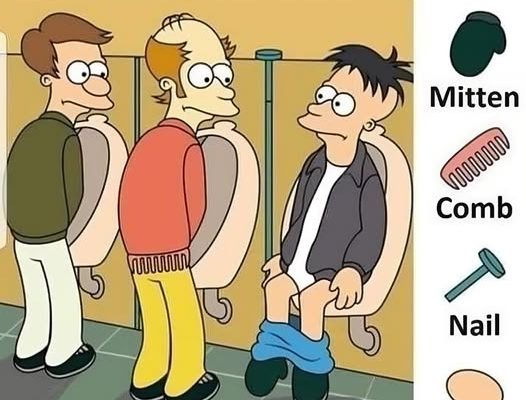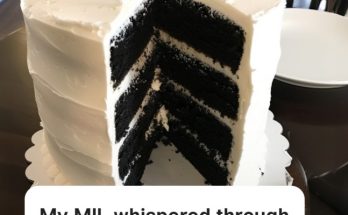Common Mistakes When Solving Hidden Object Puzzles

Before we jump in, it’s helpful to be aware of some common pitfalls that can trip you up in puzzles like this one. Here’s why these mistakes happen and why it’s easy to overlook hidden objects in what appears to be a straightforward image.
- Focusing on the Obvious: Often, our eyes are drawn to the center or to familiar objects in the image, leading us to miss the subtler elements on the edges or in the background.
- Overlooking Small Details: Our brains prefer to focus on the big picture rather than minuscule details. This is great in daily life but can be a problem in puzzles where the tiniest element is the key to the answer.
- Sticking to Familiar Patterns: People tend to look for objects where they logically belong. But in puzzles, hidden objects are often tucked away in unlikely spots or disguised cleverly, throwing off our typical expectations.
- Falling for Camouflage Tricks: Puzzle creators love to incorporate hidden objects using camouflage, blending them seamlessly into other items. Unless you’re meticulously examining each area, these hidden elements can be easy to miss.
With these common mistakes in mind, let’s dive into the puzzle step-by-step and see if we can solve it together.
Step-by-Step Guide to Finding Each Hidden Object
Let’s locate each hidden item with a systematic approach to ensure we don’t overlook any key details.
Step 1: Review the List of Hidden Objects
The puzzle requires us to find four specific items: a mitten, a comb, a nail, and an egg. Take your time and approach each object individually to avoid getting overwhelmed.
Step 2: Locate the Mitten
The mitten is our first target. Naturally, we might expect to see it on a person’s hand or tucked in a coat pocket. But this puzzle plays with our assumptions. Look closely at the feet of the man sitting down—you’ll notice that one of his shoes isn’t actually a shoe at all but a mitten! This unexpected twist tricks the viewer by using misdirection to hide it in plain sight.
Step 3: Find the Comb

Now, let’s hunt for the comb. You might be tempted to look in someone’s hand or near their head, but this puzzle is a bit sneakier. Check the sweater of the person in the orange outfit—you’ll spot the comb tucked into the back of his sweater, blending in well with the background. This use of camouflage makes it easy to miss unless you’re looking carefully at each character.
Step 4: Spot the Nail
Our next target is the nail. Many people instinctively look on the floor or nearby surfaces. But this puzzle has placed the nail somewhere more discreet. Look closely at the wall in the background near the partitions. You’ll find the nail embedded into the wall, a small detail that could easily be overlooked but is essential for completing the puzzle.
Step 5: The Elusive 4th Object – The Egg
Finally, we reach the 4th object: the egg, which seems to stump most people. Many search the floor or other obvious places, expecting to find it where an egg might normally be. However, this puzzle cleverly camouflages it in a surprising spot. Look carefully at the face of the man sitting down, and you’ll notice an egg-shaped detail right on his nose, as if it’s part of his face. This unexpected placement is what makes the 4th object so tricky to find.
What We Can Learn from the Puzzle’s Techniques
This puzzle showcases several techniques designed to challenge your expectations and force you to think creatively. Here’s how each item’s placement adds to the difficulty:
- The Mitten as a Shoe: By disguising the mitten as a shoe, the puzzle disrupts our usual associations with clothing, using misdirection to keep the mitten hidden.
- The Comb in the Sweater: By tucking the comb into a sweater, the puzzle takes advantage of blending techniques, hiding the item in a way that seems natural and inconspicuous.
- The Nail on the Wall: A classic example of “hidden in plain sight,” the nail is there on the wall, but its small size and neutral color make it easy to overlook.
- The Egg on the Nose: This placement is the most surprising, hiding the object where it defies logic, making it the hardest to find and the cleverest use of camouflage.
Share Your Answer and Join the Discussion

Did you manage to find all four hidden objects? If so, great job! This puzzle requires sharp observation skills and a bit of out-of-the-box thinking. If you missed any, don’t worry—that’s part of the challenge!
Share your thoughts in the comments. Did you spot “the egg on the nose” right away, or was it more challenging? And if you enjoy puzzles like this one, feel free to share your favorite brain-teasers. Let’s keep the conversation going and challenge each other to find hidden objects faster.
Conclusion: The Benefits of Puzzles for Sharpening the Min
This puzzle isn’t just a fun challenge; it’s a great way to practice skills like attention to detail, patience, and creative problem-solving. Puzzles like these encourage us to look closely at things we might otherwise overlook, training our minds to process visual information more effectively.
Hidden object puzzles can also help us think outside the box, reminding us that sometimes, the answer lies in the least expected places. They’re more than games—they’re mental workouts that improve focus and enhance observation skills, abilities that benefit us in everyday life.
So the next time you encounter a tricky puzzle, embrace the challenge and dive in. With each puzzle you solve, you’re giving your brain a powerful boost, and who knows? You might just unlock a new level of creativity and observational skill






